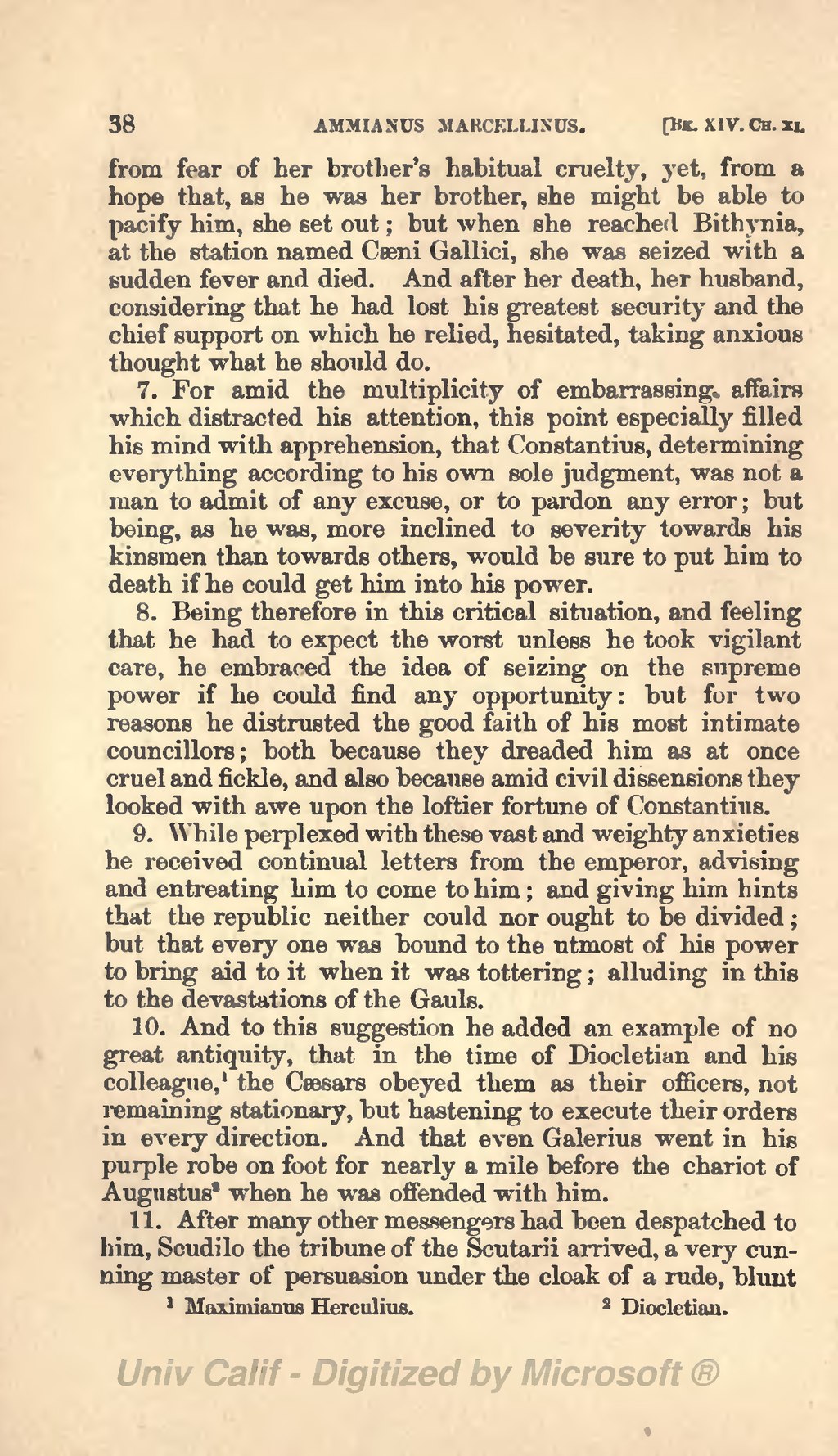from fear of her brother's habitual cruelty, yet, from a hope that, as he was her brother, she might be able to pacify him, she set out; but when she reached Bithynia, at the station named Cæni Gallici, she was seized with a sudden fever and died. And after her death, her husband, considering that he had lost his greatest security and the chief support on which he relied, hesitated, taking anxious thought what he should do.
7. For amid the multiplicity of embarrassing affairs which distracted his attention, this point especially filled his mind with apprehension, that Constantius, determining everything according to his own sole judgment, was not a man to admit of any excuse, or to pardon any error; but being, as he was, more inclined to severity towards his kinsmen than towards others, would be sure to put him to death if he could get him into his power.
8. Being therefore in this critical situation, and feeling that he had to expect the worst unless he took vigilant care, he embraced the idea of seizing on the supreme power if he could find any opportunity: but for two reasons he distrusted the good faith of his most intimate councillors; both because they dreaded him as at once cruel and fickle, and also because amid civil dissensions they looked with awe upon the loftier fortune of Constantius.
9. While perplexed with these vast and weighty anxieties he received continual letters from the emperor, advising and entreating him to come to him; and giving him hints that the republic neither could nor ought to be divided; but that every one was bound to the utmost of his power to bring aid to it when it was tottering; alluding in this to the devastations of the Gauls.
10. And to this suggestion he added an example of no great antiquity, that in the time of Diocletian and his colleague,[1] the Cæsars obeyed them as their officers, not remaining stationary, but hastening to execute their orders in every direction. And that even Galerius went in his purple robe on foot for nearly a mile before the chariot of Augustus[2] when he was offended with him.
11. After many other messengers had been despatched to him, Scudilo the tribune of the Scutarii arrived, a very cunning master of persuasion under the cloak of a rude, blunt
